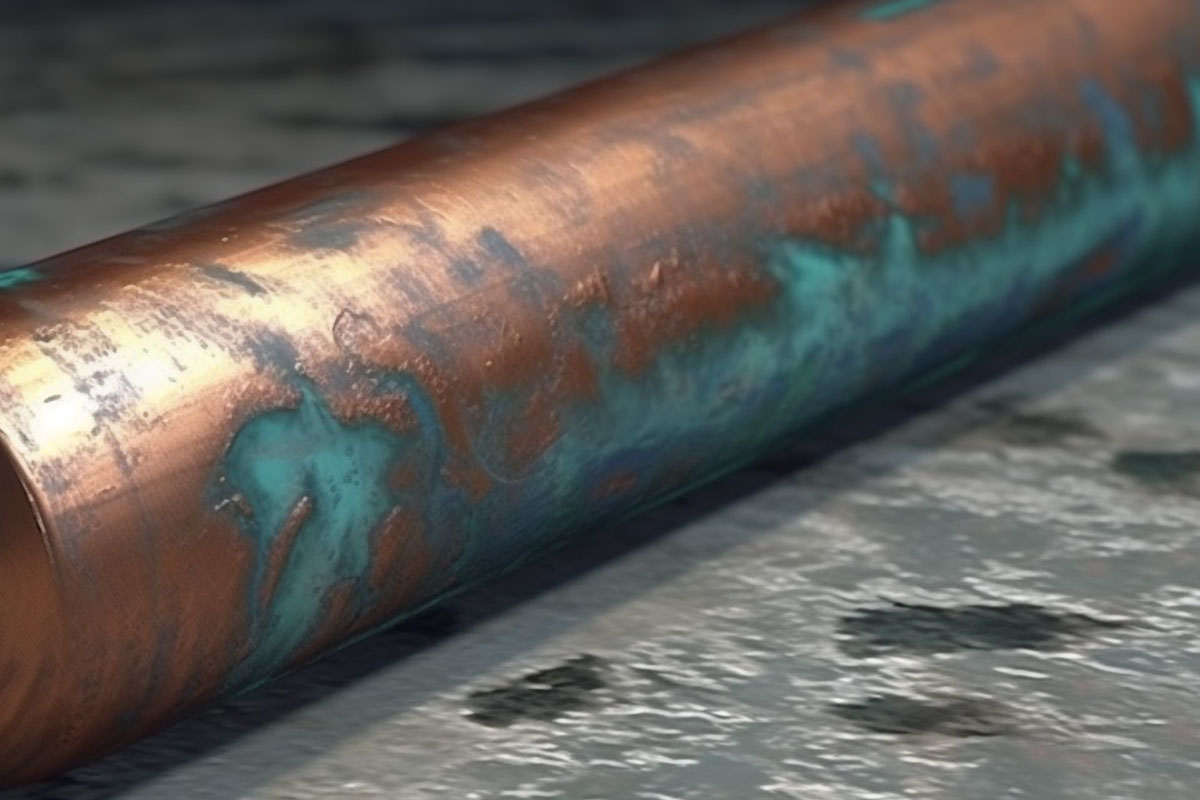When it comes to repiping your home, selecting the right material is critical. Two popular options for whole-house repiping are PEX (cross-linked polyethylene) and CPVC (chlorinated polyvinyl chloride). Both materials are cost-effective, durable, and efficient, but they have unique characteristics that might make one a better fit for your needs. In this blog, we’ll break down the pros, cons, and key differences between PEX and CPVC to help you make an informed decision.
What is PEX?
PEX is a flexible plastic piping material widely used in plumbing due to its durability and ease of installation. Its cross-linked polyethylene construction makes it resistant to cracking, freezing, and corrosion.
Advantages of PEX
-
- Flexibility — PEX can bend around corners, reducing the need for fittings and simplifying installation.
- Durability — PEX resists scale buildup, chlorine, and corrosion, making it ideal for long-term use.
- Ease of Installation — PEX’s flexibility allows for faster installation with fewer joints, minimizing potential leak points.
- Freezing Resistance — Its elasticity makes PEX less likely to burst in freezing temperatures.
- Cost-Effective — Labor costs are generally lower due to its quick and easy installation.
Disadvantages of PEX
-
- UV Sensitivity — PEX degrades when exposed to sunlight, requiring careful handling during installation.
- Potential Chemical Concerns — Some people have concerns about chemicals leaching into water, although certified PEX products meet safety standards.
What is CPVC?
CPVC is a rigid plastic material that has been treated with chlorine to withstand high temperatures and resist chemical damage. It has been a trusted choice for decades in residential and commercial plumbing.
Advantages of CPVC:
-
- High Temperature Tolerance — CPVC can handle hot water up to 200°F, making it suitable for hot water lines.
- Corrosion Resistance — CPVC does not corrode, making it ideal for areas with hard or acidic water.
- Proven Track Record — With decades of reliable use, CPVC is trusted for its durability.
- Cost-Effective — CPVC pipes and fittings are affordable and readily available.
Disadvantages of CPVC:
-
- Brittleness — Over time, CPVC can become brittle and susceptible to cracking, especially in cold climates.
- Complex Installation — CPVC requires precise cutting, priming, and gluing, which takes more time and skill than PEX installation.
- Chemical Sensitivity — CPVC is sensitive to some solvents and oils, which can compromise its integrity.
CPVC vs PEX: Key Differences
| Feature | PEX | CPVC |
|---|---|---|
| Flexibility | Highly flexible; bends easily | Rigid; requires more fittings |
| Installation | Quick and easy | Time-consuming |
| Durability | Resistant to freezing and cracking | Can become brittle over time |
| Temperature | Max 180°F | Max 200°F |
| Cost | Lower labor costs | Lower material costs |
| UV Resistance | Requires protection | Better UV resistance but still limited |
PEX Pipe vs CPVC for Plumbing Maintenance Services
When to Choose PEX:
-
- You want a quick and cost-effective installation
Your home is in an area prone to freezing temperatures
Your homeowners’ insurance is at risk of dropping you unless you use a high-standard like PEX - You’re looking for a low-maintenance option that minimizes leak risks. When to Choose CPVC
- You need piping for high-temperature applications.
- Your area has hard or acidic water that could corrode metal pipes.
You prefer a material with a long history of reliable use.
CPVC is not ideal for homes as PEX is increasing in popularity for its longevity and stability
- You want a quick and cost-effective installation
Conclusion: Is PEX better than CPVC?
Yes, and by a longshot. CPVC has some advantages, but overall, it is now an outdated material that is prone to leaks, breaks, homeowner’s insurance companies dropping you for not upgrading your plumbing, and more. When it comes down to it, PEX is the long-term, new-age solution for mobile homes, residential, and commercial plumbing that requires an upgrade or to avoid damages from old CPVC piping.
Need help with your repiping project? Contact us today for expert advice and services tailored to your needs!



